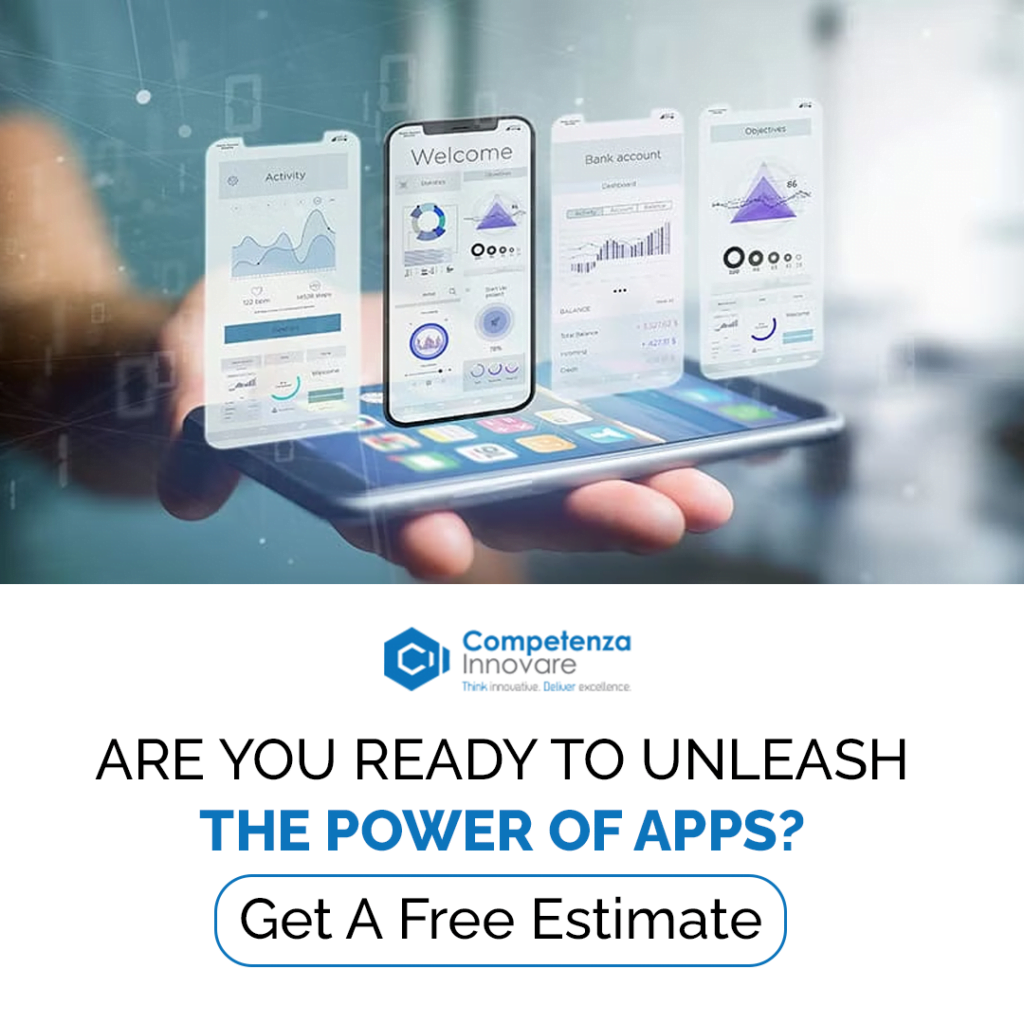The world is getting digital each passing year, and any business that is not giving importance to it and is not incorporating the digital trend will definitely fall behind.
The evolution of digital technology in the healthcare industry has enabled medical centers, clinics, and other healthcare facilities to greatly transform the delivery of healthcare services to their patients.
Healthcare app solutions are transforming the whole healthcare landscape in terms of doctor’s consultations, medical treatments, and medical prescriptions.
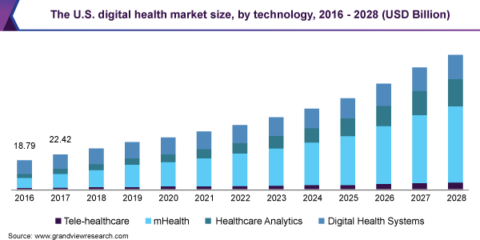
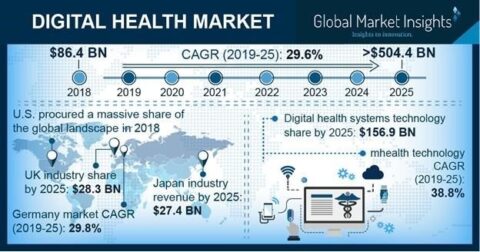
⭐ Some Trending Applications in the Digital Healthcare Landscape
1. Teladoc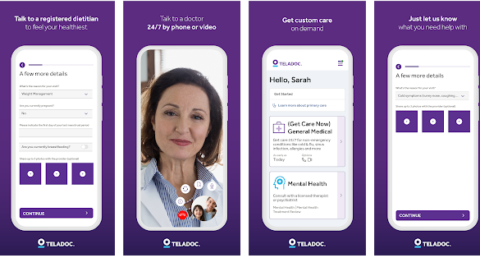
2. mySugr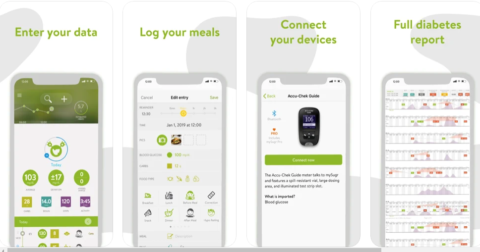
3. CVS Pharmacy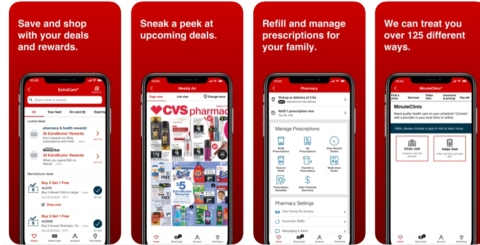
4. Medisafe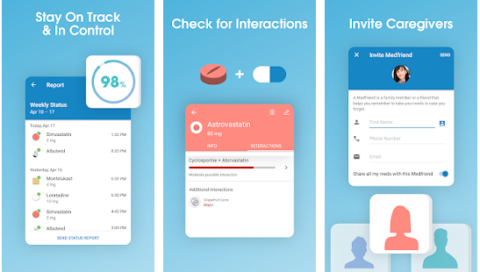
5. PTSD Coach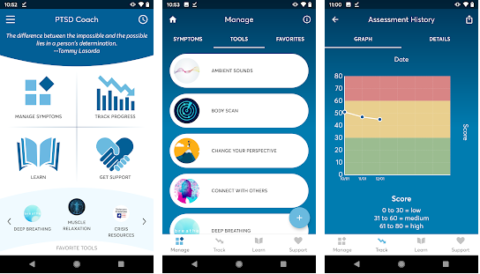
⭐Four Key Elements – Transition to the Digital Health Model
While making a transition to the new digital health model, you have to zero in four key elements – Innovation, Engagement, Seamless Access and Security.
1. Innovation – Bringing a radical change in healthcare operations through innovative digital ideas.
2. Engagement – Enabling seamless digital interactions between medical centers and patients.
3. Seamless Access – Allowing seamless access to health-related information across medical systems and devices.
4. Security – Win your patients’ trust by ensuring secure information in the digital era.
⭐Why Incorporating Healthcare App Solution is a Must for Healthcare Enterprises?
| ♦ Allowing patients to book an online appointment seamlessly. | ♦ Help both physicians and patients to make consistent contact via virtual consultations. rather than standing in a queue to make an appointment for a consultation. |
| ♦ Allowing patients to quickly access vital health-related information online, can help in reducing extra costs such as unnecessary visits. | ♦ Offering medical care for elderly patients who cannot easily get out of their homes due to chronic health conditions. |
| ♦ Offering personalizing health treatment programs for each patient. | ♦ Minimizing human error via electronic record-keeping solution. |
| ♦ Helping patients to track their own medical conditions and make them proactive about potential medical treatments. | ♦ Minimizing the spread of diseases and infections by implementing virtual appointments. |
| ♦ Reducing operational costs of hospitals by saying NO to paper usage. | ♦ Helping patients to have their medicine on-time regularly by implementing the Pill Reminder app solution. |
| ♦ Regularly check and record their symptoms without the intervention of any physician. | ♦ Real-time symptom checks for quick diagnoses. |
⭐Key Parameters to Consider in Shifting to the Digital Healthcare Model
As a healthcare entrepreneur, if you want to come out as a winner in this new digital marketplace then you have to consider some key aspects.
The following are the key aspects:
- Research and identify which digital health technology provider can shape your digital strategies.
- Make use of big data to find actionable insights via analytical tools for a better return on investment and quicker outcomes for decision making.
- Leverage digital technologies such as Cloud computing, Wearable technology, AR/VR, IoT, AI and lots more, for a smarter workforce and embrace workflow automation to fuel the ROI of your Digital Health organization.
- Understand and follow the country-specific healthcare compliances.
⭐List of Compliances in Healthcare Software & App Development
In an industry like healthcare, compliance is pivotal. Healthcare compliance is a set of rules, regulations, and laws with respect to healthcare practices such as patient safety, the privacy of patient’s personal data, and medical billing practices.
Healthcare firms can enhance the quality of medical care by complying with industry laws & regulations. However, violating the healthcare laws can bring in lawsuits, huge fines, or even loss of licenses.
If you are willing to develop a healthcare application, make sure your application complies with country-specific healthcare compliance. Otherwise, your app will be removed from app marketplaces, even if the app is technically perfect.
There are various compliances in the healthcare industry. And it varies with countries.
Let’s have a look.
The USA:
#1 Health Insurance Portability and Accountability Act (HIPAA)
The Health Insurance Portability and Accountability Act of 1996 (HIPAA) is a federal law to safeguard patient’s health-related information. The law applies to healthcare providers, health plans, healthcare clearinghouses, and business associates.
#2 Protected health information (PHI)
Protected health information comprises sensitive data about health status, provision of health care, or payment for health care that is protected under HIPAA Privacy Rule to identify a patient or offer healthcare services or health care coverage.
PHI includes patient’s demographic data, medical histories, lab reports, medical insurance information, and many more.
#3 Health Information Technology for Economic and Clinical Health Act (HITECH)
The Health Information Technology for Economic and Clinical Health Act (The HITECH ACT), is a part of an economic package initiated at the time of the Obama administration. In 2009, this Act was signed into law by Barack Obama.
The HITECH Act was made to support technology and to embrace Electronic Health Records (EHR) in the USA.
#4 HL7 (Health Level 7)
HL7 also known as Health Level Seven is a group of international standards for the exchange of clinical and administrative information between applications leveraged by a plethora of healthcare enterprises.
These health level standards aim at the application layer, which is “layer 7” in the OSI model. These 7 standards are created by Health Level Seven International, an international standards firm, and are embraced by other standards issuing bodies such as American National Standards Institute and International Organization for Standardization.
The European Union:
#5 The General Data Protection Regulation (GDPR)
GDPR is a regulation compliance in the European Union and the European Economic Area that states any business which gathers personal data of EU citizens for transactions should comply with this regulation.
The United Kingdom:
#6 The Data Protection Act (DPA Act)
The DPA act is a United Kingdom act of Parliament that was passed in 1988. It was created to monitor and control the usage of any personal information of a person by enterprises or government bodies.
Canada:
#7 Personal Information Protection and Electronic Documents Act
The Personal Information Protection and Electronic Documents Act (PIPEDA) is the federal privacy law for private firms in Canada. Any Canadian private organization that gathers personal information at the time of commercial operations is subject to PIPEDA.
⭐Healthcare App Development Ideas and Key Features
Some of the trending app development ideas in the healthcare niche are listed below:
- Pill Reminder and Medication Tracker App
With this healthcare app solution, patients can set reminders for taking medicines on time and also be able to track their health.
Key Features:
- View your pill reminder list.
- Refill reminders to restock the patient’s medicines.
- Generate progress reports.
- Sync pill reminders with the patient’s smartwatch.
- Online Medicine Delivery App
With an online medicine delivery app solution, patients can online purchase medicines anytime and from anywhere. And medicines are delivered to patients’ doorstep within a few days.
Key Features:
- Search for medicines online.
- Order online medicines.
- View information related to medicines such as uses, direction of use, dosage, storage/disposal, side effects, many more.
- Book diagnostic tests such as blood tests, full body checkup, many more, right from the home.
- Pay bills online.
- Telemedicine App
A telemedicine app solution allows medical practitioners to diagnose and treat patients remotely via communication technologies such as video conferencing, calls, and text/chat.
Key Features:
- Search and select a doctor.
- Book an online appointment with a doctor.
- Make a video consultation with a doctor.
- Upload medical reports.
- View medical reports.
- Create and update medical history.
- Update personal details such as location, phone number, so on.
- View billing information.
- Pay bills for consulting a doctor.
- e-Prescription App
The electronic prescription software solution allows doctors to generate prescriptions online and share those with pharmacists. On receiving the e-prescription, pharmacists fill medicines for patients.
Key Features:
- Patients’ can generate refill requests.
- Doctors can access the medicine database.
- Doctors can view a patient’s prescription history.
- Doctors can send prescriptions online.
- Doctors can re-prescribe old medicines if required.
- Patients can fax to a pharmacist for any issue related to prescription.
- Both patients and pharmacists can view prescription details.
- Medicine dashboard
- Manage patients’ records online.
⭐APIs in Healthcare Application Development
You must leverage healthcare APIs while building any medical app. App developers can save their time and effort writing the code from scratch. Apart from that, the leading APIs facilitate application support, code debugging and fixing errors.
I have listed some amazing APIs that facilitate medical software development.
#1 Eviti
The Eviti Web API is a healthcare API that allows doctors to pick the treatment that matches the patient’s specific diagnosis and type of health insurance.
#2 DrChrono
DrChrono is a free healthcare API for developers. This API offers a platform to doctors that will include, from the application diagnostic tools to the processing of medical bills.
#3 Allscripts API
This API enables application developers to create with Allscripts’ EHR (Electronic Health Record) application. Software developers can leverage Allscripts to transfer data between the EHR systems and third-party applications, allowing data to be shared between healthcare providers in no time.
#4 AdvancedMD
AdvancedMD API is appropriate for individual doctors and large groups of several providers. There are more than 40 templates for physiotherapy, mental health, and lots more. Developers can also build their own third-party applications with the required features.
#5 Eligible
Eligible API enables you to quickly introduce medical real-time eligibility and insurance claim processing to your application. Gather insurance policy information seamlessly and securely, and create transactions server-side.
⭐Technology Trends in Healthcare Software Development
#1 Wearable Technology
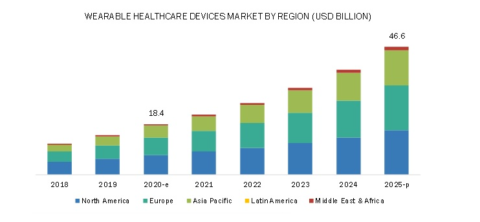
Source: MarketsandMarkets
Wearable technology is gradually becoming pivotal in managing illnesses and chronic conditions. Patients who use healthcare apps integrated with wearable technology, can track everything from heart rate to temperature to reproductive cycle. Doctors can also unleash the potential data to draft healthcare plans for patients.
KardiaMobile is a product that monitors heart activity and transmits the data to an app via chest and finger sensors.
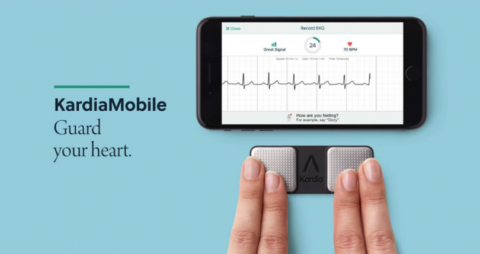
Image Source: KardiaMobile
#2 Blockchain Technology
A blockchain is a distributed system where transaction records are stored and distributed across all users. There is no central authority. Any interaction with the blockchain is known to all users and needs verification by the blockchain network before information is added.
The blockchain market in healthcare was valued at USD 2.12 billion in 2020, and is expected to reach USD 3.49 billion by 2026.
Medicalchain’s blockchain-based platform safeguards patients’ identity. In 2018, Medicalchain announced the release of a telemedicine platform, MyClinic. This platform allows patients to have video consultations with their doctors and pay the consultation fees with “MedTokens.”
#3 The Internet of Medical Things (IoMT)
The Internet of Medical Things (IoMT) or healthcare IoT is a subset of the Internet of Things (IoT). It is a network of medical devices, applications, and healthcare systems that transmit real-time data via networking.
As per a report by Deloitte, the market value of IoMT can touch $158.1 billion by 2022, which is 3x more from 2017.
Let’s take up a healthcare IoT use case- CapsoCam Plus. The smart pill for endoscopy test offers a complete 360º panoramic lateral view in high resolution and connects to a software system that is compatible with both Mac and Windows OSs.
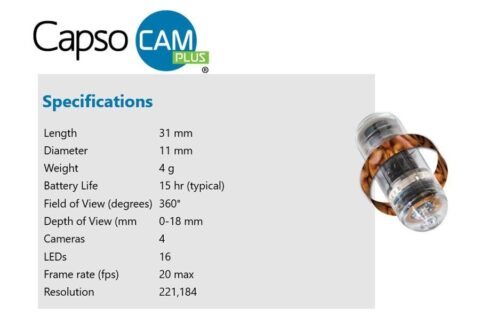
Image Source: CapsoVision
#4 Cloud Computing
In Cloud computing technology, users can on-demand access to computing resources such as applications, servers, data storage, and more, via the internet. It works on a “pay-as-you-go” model. That means, users can pay bills based on their usage.
According to a report, the global demand for cloud technology in the healthcare industry is projected to expand by US$25.54 billion by 2024.
For example, ClearDATA’s cloud-based healthcare software platform protects customers from data leaks, enhances their data management, and scales their healthcare IT infrastructure.
#5 Artificial Intelligence (AI)
AI technology is concerned with creating smart machines that are capable of performing tasks (generally need human intelligence).
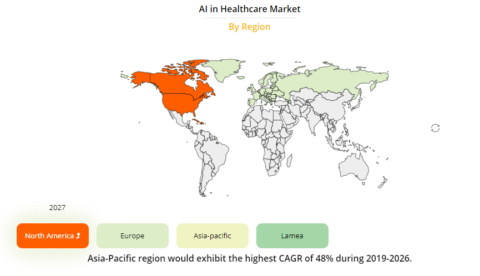
Source: Allied Market Research
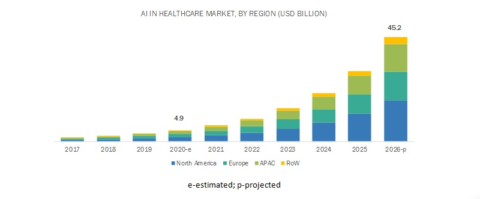
Source: MarketsandMarkets
AI-enabled healthcare apps allow the medical centers to deeply understand clinical data and generate actionable insights into patient health.
AI integrated healthcare apps enable healthcare providers and hospitals to automate mundane front office and back-office operations.
#6 VR and AR Technologies
AR is a digital technology that superimposes digital objects in the real world. Whereas VR is a digital technology, providing a computer-generated environment with scenes and objects that look real.
AR and VR integrated healthcare apps are witnessing huge adoption in the healthcare sector such as surgical departments, simulation labs, learning & training, chronic pain management and many more.
As per Grand View Research, the global AR & VR in the healthcare market is expected to touch USD 9.5 billion by 2028.
AR healthcare applications help doctors at the time of surgeries. The patient’s MRT and CT data are uploaded into AR glasses that allow overlaying a patient’s anatomy onto his or her body.
VR-enabled healthcare software solutions are being used to impart medical education and training. VR integrated medical apps offer 3D interactive visuals to create the best training programs for physicians and medical students.
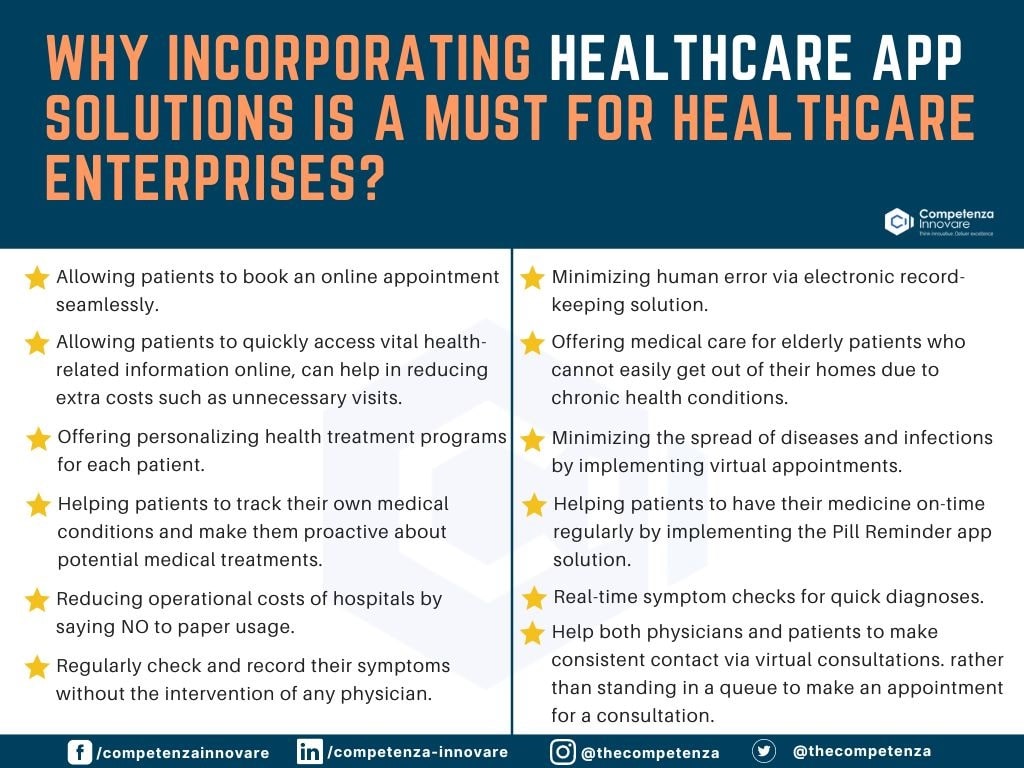
⭐What Steps to Follow in Healthcare App Development?
Step 1: Come Up with a Healthcare App Development Idea
Look for a healthcare software development idea that can address an existing issue in the medical world. First of all, define the issues related to doctors, nurses, and patients and how your healthcare app can solve those issues.
Step 2: Conduct a Market Research
Understanding the market is imperative before building a healthcare application. Conducting market research helps you to build a product that stays in the market for a long time.
- Figure out your potential competitors
- Evaluate their implementations
- Explore key strengths and weaknesses
- Know your target users
After a deep understanding of the market, you can create a list of the basic features and functionalities that your healthcare application will offer to the users.
Step 3: Collaborate with the Leading Healthcare App Development Company
After thorough market research, you need to look for an authentic and highly experienced healthcare app development company. The app development partner can help you right from planning to developing to launching your healthcare app. And even which offers support and maintenance.
Step 4: Software Design for the Healthcare App Project
Application Design is pivotal for any application development projects including healthcare app projects. It should be designed as per the type of healthcare application and the target user.
Key points to consider while designing healthcare software:
♦ User-friendliness
In order to design a healthcare app, make sure you design user-friendly UIs of the app. So, that users can seamlessly navigate from one screen to another within the application.
♦ Responsiveness
The application should be designed in such a way so that it works well on all screen sizes.
♦ Empathy
Last but not the least, this pointer is a must to consider while designing a healthcare app. Healthcare app users might have some kind of disabilities (if the app is for patients), so you need to understand the users.
Step 5: Build an MVP Healthcare Software Solution
The ideal way of creating healthcare software is to go with Minimum Viable Product (MVP). Avoid creating the entire app in one go.
You should initially build the core features of the application and launch it. Based on users’ feedback, test the first version of the app and iterate it further. This way you can gradually enhance the product.
This MVP approach allows you to initially invest a small amount and also it helps you to test your app idea.
⭐Key Metrics to Measure your Healthcare App Performance
Just successfully launching your healthcare application is not all. You need to do the performance assessment of your app.
So, which metrics will you look at?
♦ Downloads – This metric tells you how many times app users have downloaded your app.
♦ Monthly active users – The number of app users who log in and took action on your app at least monthly once.
♦ Daily active users – The count of app users who use your app regularly. With this metric, you will identify your most engaged user group.
♦ Churn rate – A certain percentage of app users who are canceling or removing your app each month.
♦ Number of sessions – With this metric, you will get to know how many times your app is used daily or monthly.
♦ Session time – What amount of time app users are staying in your app. You will get an idea of whether your app is good enough to entice or not.
⭐App Monetization Strategies: Generate Revenue from your Healthcare App
In this new era, mobile usage is growing exponentially. There is a huge opportunity for healthcare app owners to make revenue from their digital healthcare services.
Let’s look at the app monetization strategies that you can implement in your healthcare application.
#1 Freemium (Free + Premium)
In this strategy, users will download the free version of your app and be able to access a limited feature. If they get a good experience, pay for the premium version to enjoy the other value-added features.
#2 Sponsorship
In this monetization model, you can get in touch with potential influencers and sponsors from a healthcare domain. If your medical app has a wide customer base with a high engagement rate, you can offer products or services to your influencers on your healthcare platform. In return, you can earn money.
#3 Health Data Licensing
We all know, in this digital era, data is the new oil for any business. With this model, you can monetize your app data.
Suppose your healthcare app has a functionality that collects user-generated data, then you can license the data to other businesses. In return, you can earn money.
CPSI, a healthcare solutions company and Medicomp Systems announce data licensing partnership to integrate the Quippe Clinical Data Engine into EHR platforms.
#4 Registration fees
As a healthcare provider, you can earn money from your medical app by charging a certain amount as an app registration fee from your new users.
#5 Subscription Charges
In this app revenue model, as an app owner, you can charge medical practitioners and patients a recurring amount (generally monthly, quarterly, or yearly) to leverage medical services.
#6 Affiliate Ads
In this app monetization model, you can promote services or products of another brand on your app and earn a certain commission amount. But make sure, you need to advertise services related to the healthcare domain.
⭐How Much Does a Healthcare Software Development Cost?
After figuring out all the features, functionalities, and types of a healthcare app, the next thing you would be thinking about is the total cost to create a healthcare app.
Well, it is impossible to tell the exact cost of building a healthcare application. The reason being, cost varies with lots of app development components such as app features, functionalities, location of app development, app hosting, and many more.
Let’s look at the factors that determine the cost of developing a healthcare app.
- Hiring Freelance Developers or App Development Company
For a small healthcare project size, you can hire freelance developer(s). The cost of hiring a freelancer is less. But for a complex project, hire the best healthcare app development company. By having a complete app development team, you can create your app, launch the app and even do app maintenance. It is quite obvious that the cost will be higher for hiring a company.
The total cost of healthcare software development will vary with the hiring of a development company or hiring a freelance developer.
- Number of Resources Allocated for a Project
To kick start a healthcare software development project, only software developers alone cannot complete a project. As per your project needs, a complete team is required, it can be a small or a large one.
| Small Development Team | Large Development Team |
|---|---|
| 1 Project Manager | 1 Project Manager |
| 1 Front-end Developer | 2-3 Front-end Developers |
| 1 Backend Developer | 1 Backend Developer |
| 1 UX/UI Designer | 1 UX/UI Designer |
| 1 QA Engineer | 1 QA Engineer |
With different sizes of software development teams, the hourly rates will change. This will impact the total cost of healthcare software development projects.
- Mobile App Platforms & Operating Systems
The cost to create a mHealth app varies with the app platform and OS you pick to build your app.
♦ Native vs Cross-platform
A native app is an application that runs on a particular mobile OS, it can be Android or iOS. However, a cross-platform app is an application that operates seamlessly on multiple operating systems.
That’s why developers take more time to develop a native app than a cross-platform app. So, the cost of creating a native app is higher than a cross-platform app.
♦ Android vs iOS
App developers take more time to build an Android healthcare app than an iOS app. The reason being, developers need extra time for an Android app to get optimized for many devices & screen sizes.
This results in a higher cost for Android app development than iOS app development.
- Features & Functionalities
The functionality & feature of a healthcare app is one of the imperative factors that adds to the overall cost of building an application in the healthcare domain.
There are different types of healthcare applications in the market. Some are listed below:
- Pill Reminder and Medication Tracker App
- Diet Tracker Healthcare App
- Doctor appointment scheduling app
- Pharmacy Management App
- Electronic Health Record (EHR) App
- e-Prescription App and many more.
Different healthcare software will have different levels of complexity and features.
Based on research, a basic application would cost you somewhere between $40,000 to $60,000, a medium complexity application would cost you somewhere between $61,000 and $120,000, and a high-end application would cost $120,000+.
- Region of App Development
The cost will vary with the region of the app development because the hourly rates of an app developer will vary with the location.
Below you can look at the hourly rates of a developer with respect to the given regions:
| Developer Region-wise | Hourly Rates |
| The US and Canadian-based developers | $50 to $250 per hour |
| Australian developers | $50 to $150 per hour |
| Western European and UK-based developers | $35 to $170 per hour |
| Eastern European developers | $20 to $150 per hour |
| Indian developers | $10 to $80 per hour |
- Application Testing Cost
A software testing phase in an app development project is imperative to market the application with zero bugs. Testing a healthcare application includes manual testing, performance testing, security testing, and automation testing.
Based on the complexity and size of a healthcare software development project, the cost of testing an application varies. A few years ago, Clutch conducted a survey that tells the app testing cost may fall in the bracket of $5,000 to $25,000.
- Implementation of Secure Coding Practices
In the digital world, creating a highly secure app is the priority for any enterprise. While developing a healthcare app, developers need to introduce state-of-the-art security tools and secure coding practices. This implementation will further add to the overall app development cost.
- App Hosting Server Charges
App hosting server is a platform where an app owner provides content to app users seamlessly.
Generally, a healthcare app hosting will charge you in the range of $70 to $320 monthly. However, hosting charge varies with factors such as type of application to run, the number of resources, and lots more. So, the app hosting charge also adds to the cost of building a healthcare application.
- App Maintenance Cost
Maintenance of any product is pivotal for successfully staying in the market for a long time. And the same holds true for healthcare apps. The maintenance of a healthcare app includes introducing any new feature, enhancing an existing feature, fixing any deferred bugs, making any UI changes, or performing any app server upgradation. So, the development cost might go up by 20% of your actual app development cost.
- App Publishing on App Store
The cost of healthcare app development also varies with mobile application publishing. Let’s have a look.
♦ Google Play Store
You will have to pay a one-time fee of $25 for publishing your first Android healthcare app on the Google Play store. But, no charges from next time.
♦ Apple App Store
You will have to pay $99 annually for publishing your healthcare app on the Apple app store.
♦ Amazon App Store
For publishing your app on the Amazon app store, no need to pay. Yes, it is free to publish.
♦ Windows App Store
While publishing your app on the Windows app store, you have to pay $19 if you register as an individual. If you register as an enterprise, then charges will increase to $99. However, app publishing charges are one-time.
⭐Wrapping Up
Medical centers should rethink how they will integrate their existing systems with new digital systems to produce valuable insights for both medical practitioners and patients. In this digital era, digitally-enabled medical care is not a nice-to-have, rather a must-to-have. Digital technology has the capability to bridge the gap between patients and medical centers.
If you are interested in starting your entrepreneurial journey in the digital healthcare niche or if you want to shift your healthcare enterprise to the digital healthcare world, then talk to us. We would be glad to hear from you and help you to live your dream.



